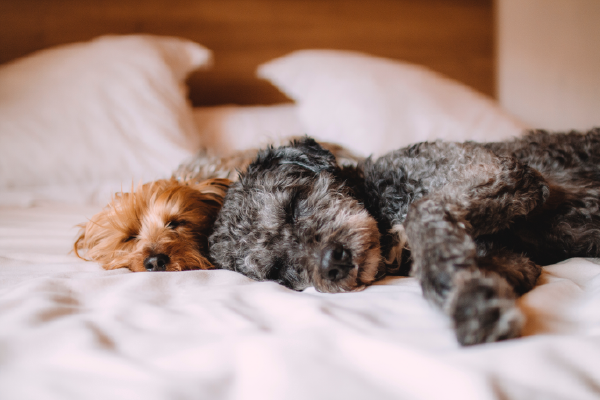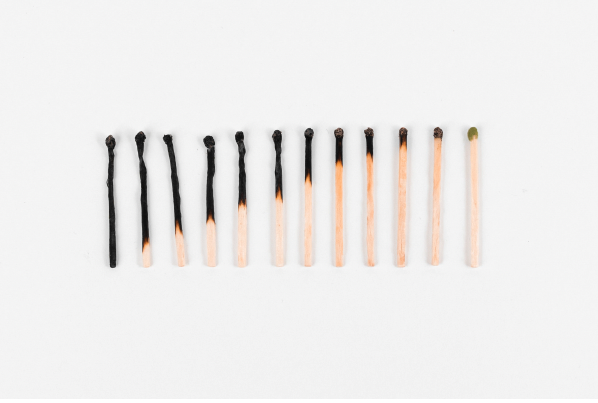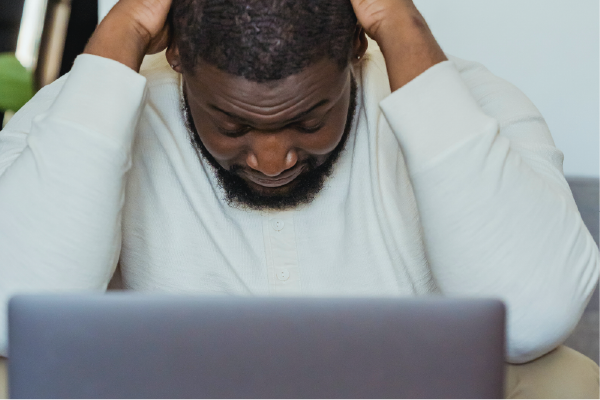Sleep is important to our health in many ways, but getting as much as we need is easier said than done. Get tips and insight on what matters most as a busy and stressed lawyer or law student.
The demands of the legal profession and life generally (especially during the pandemic) can make it difficult to log the recommended hours of sleep each night. Even with the best of self-care intentions, our culture — both of our American culture broadly and legal profession particularly — makes it difficult to prioritize sleep, such that an entire “Rest as Resistance” movement exists.
Quality of Sleep Might Matter Most
A study published last month suggests it might help to shift our focus to quality rather than quantity of sleep. When we try to make any change, starting small usually helps, and if we face obstacles to getting more hours of sleep, it might make sense to shift your immediate goal to getting better quality sleep in light of the recent findings from the University of Ontago in New Zealand. Of course, the amount of time we sleep, our physical activity, and our diet all matter as well — “But sleep quality may be the most important factor predicting good mental health,” as reported by Science Alert, which continues:
“This is surprising because sleep recommendations predominantly focus on quantity rather than quality,” said Wickham.
Since the study didn’t make any changes to people’s sleep, activity or diet, we can only draw links between behaviours and outcomes, and cannot attribute causes.
Cautiously, the researchers suggest in their paper that young adults should prioritise getting good quality sleep, but they also stress the importance of eating well and exercising often since “physical activity and diet are secondary but still significant factors.”
Tips to Sleep Better, and More
For those of us who struggle to sleep sufficiently for any reason, being reminded of the importance of sleep might be add unhelpful pressure. Plenty of us have suffered from acute or chronic insomnia, a common sleep disorder affecting roughly 50% of adults. When we’re unable to fall sleep with sleep onset insomnia, focusing on why sleep is so important can be counterproductive, contributing to anxiety that keeps us awake. We suggest the following tips for those who struggle to fall asleep in addition to treatment from a licensed professional. (Legal professionals in Massachusetts can schedule a Free & Confidential appointment with one of our licensed clinicians.)
- Shift your immediate goal to relax instead of sleep. Naturally, you’ll still acknowledge your ultimate goal still is to sleep while also recognizing that shifting the immediate focus is a necessary step along the way.
- Focus on your breathing. Our breathing sends signals to our brain, telling it to activate or relax. Slowing down our breath slows down our heart rate and help us relax. (Like other mindfulness efforts, practicing the 3-6-5 breathing method daily for sleep can help.)
- Try listening to soothing sounds. Nature sounds, vocal mantras, and more are easy to find on Youtube and with apps. Here’s just one example of many.
Practical habits to improve your sleep include the following — but be careful not to try them all at once. We don’t want to overwhelm ourselves by attempting more change than we can handle at once. When it comes to making any habit stick, we have to prime our environments to support them.
- Create a routine for preparing to go to bed: Be predictable in terms of time (try to make your bedtime the same every day of the week), behaviors (do the same set of behaviors in prep for bedtime – brush teeth, wash face, PJs, etc.), and setting (sleep in the same place, reduce noise, adjust lighting, create a calm space).
- Keep your phone out of your bedroom, and shut off screens 30 minutes prior to bed: Bright screens stimulate our eyes and brains. Our brains need some time to adjust to a more restful state.
- Turn clocks away from view: If you have trouble going to sleep, or getting back to sleep, looking at the clock usually gets in the way of relaxing. Our minds typically start to do math to see how many potential hours we have left to sleep. In addition to stimulating our brains with math, this can also cause anxiety about how you are not getting enough sleep, thus causing us to stay awake longer.
- Reserve your bed for actual sleep: The more you can use your bed just for sleeping, the stronger your brain will associate your bed with sleep. Try to cut out reading, internet, texting, tv/movie watching, and other activities in bed. Reserve your entire bedroom for rest as much as possible.
- Reduce anxiety prior to going to bed: If you have a list of things that run through your mind as you try to fall asleep (things you are worried about, a to-do list, fears about tomorrow, etc.), try giving yourself time to think about those things prior to getting into bed. Try some problem solving techniques to reduce your anxiety (make an actual to-do list, practice acceptance, use anxiety coping skills, etc.).
A couple inexpensive products could help as well, suggested from Well+Good:
- Sleep Masks
- No-Sound Alarm Clocks
- Cool Sheets (or just turn down your thermostat; meanwhile, some with the budget swear by fancier products like chilisleep.)
Finally, managing our time more effectively can free up time for more sleep. First, remember that sleep improves productivity and prioritize it. Still, time management strategies can be key to well-being — find 5 Productivity Guidelines for Lawyers & Law Students here on our Mass LOMAP Blog.
Benefits of Sleep
The “devastating health consequences” of sleep deprivation are documented in Why We Sleep, a 2018 New York Times bestseller by Matthew Walker, PhD. An article related to a 2020 COLAP presentation from Robin M. Wolpert and Joan Bibelhausen summarizes key takeaways from Why We Sleep for those in the legal profession. A COLAP audience member remarked that reading the book after the presentation transformed his understanding of his own sleep struggles, leading to proper treatment and improved sleep.
Beyond shortening our life expectancy and contributing to a range of health problems, sleep deprivation impacts our cognitive functioning in a host of ways, which Walker discussed in a 2017 Talk at Google. He noted that objective impairments can be measured in humans getting just under 7 hours of sleep, and explained that disruption of deep sleep in particular is an under-appreciated contributor to cognitive decline. Walker also demonstrated surprisingly quick effects of sleep deprivation on emotional stability.
Impacts of sleep loss on productivity in particular have been demonstrated repeatedly. One recent study indicated that just 16 minutes of sleep loss impacts productivity. “All told, insufficient sleep costs the American economy $411 billion in missed workdays and reduced productivity annually, according to a 2016 report by the Rand Corporation,” (Entrepreneur, 2021.) Zapier reviewed The Science of Sleep and Productivity in 2019, highlighting the paradox of foregoing sleep to work with the following quote from Matthew Carter, PhD’s TEDx Talk:
One of the biggest reasons that people don’t get enough sleep is because they feel they have too much to do or because they are stressed about what they need to work on. So we’re not getting enough work done because we’re sleep-deprived and we’re not sleeping because we’re not getting enough work done.
Related Resources:
Winding Down: Get a Better Night’s Sleep (LinkedIn Course)
Matthew Walker: Why Is It Essential To Make Time for Sleep? (NPR, 2021)
Sleeping Too Little in Middle Age May Increase Dementia Risk, Study Finds (NY Times, 2021)
Humans Used to Sleep in Two Shifts, and Maybe We Should Start Again (Science Alert, 2020)
4 Surprising Ways to Get a Better Night’s Sleep (UC Berkeley Greater Good Science Center, 2021)
Fall Asleep Faster Using ‘Cognitive Shuffling’ (Lifehacker, 2021)
Your Sleep Could Be Dictated by the Phases of the Moon, a Study Says (CNN, 2021)
Can We Convince the Sleeping Brain to Process Our Problems (Slate, 2020)
The Mysterious Link Between Covid-19 and Sleep (The Atlantic, 2020)
How to Manage Your Diet for Better Sleep During Covid-19 (Slumber Yard, 2021)
Your Brain May Need Sleep to Repair DNA ‘Potholes’ (CBC Radio, 2019)
Experiment Reveals Why Getting More Sleep Isn’t Always Beneficial (Science Alert, August 2021)
Free & Confidential Consultations:
Lawyers, law students, and judges in Massachusetts can discuss concerns with a licensed therapist, law practice advisor, or both. Find more on scheduling here.




